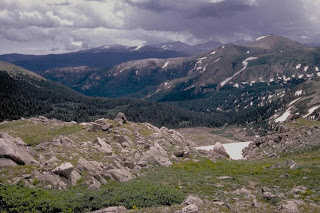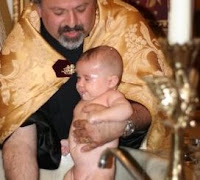Lenten Recipe
Recipe 35: Roasted Eggplant with Cashews
Lenten Journey Day 35- Last Days Today’s Lenten meditation is a riddle of sorts. It begins with the very basic question, how can we be prepared for the return of Jesus Christ? As it unfolds we find a very unique message with the instruction we need, with the exact steps we need to go through in preparation for a cataclysmic event. These instructions, however, have more to do with today than with tomorrow. This last Sunday of the Lent is called referred to as the Sunday of Advent in the Armenian Church.
 In the Creed of Nicaea, which we recite every Sunday during the Divine Liturgy, we confess the second coming. We say, Jesus is to return to judge the living and the dead. In scripture there are references to the “signs of the times.” Specifically earthquakes, famines and wars are named as the events that will precede the coming of the end. Unfortunately curiosity often gets the better of us, and rather than preparing for those last days we consume ourselves with questions of where, when, and how these last days will come about.
In the Creed of Nicaea, which we recite every Sunday during the Divine Liturgy, we confess the second coming. We say, Jesus is to return to judge the living and the dead. In scripture there are references to the “signs of the times.” Specifically earthquakes, famines and wars are named as the events that will precede the coming of the end. Unfortunately curiosity often gets the better of us, and rather than preparing for those last days we consume ourselves with questions of where, when, and how these last days will come about.
Our Lord Jesus tells us that no one knows the answer to those questions, not the angels in heaven, not even the son, but only the Father. But curiosity is powerful. The book of Revelation is often consulted to quench the thirst of curiosity. Revelation is a book of prophecy and few can understand prophecy, many times the message is distorted by conjecture. The Church does not even prescribe reading this book (it is not in the lectionary of weekly readings) nevertheless, people read it and read into it. They point to hurricanes, famines and wars as signs of the times and then speculate that the end times are here. Jesus warned us against such misinterpretation of prophecies. When then should we do? How do we prepare for the second coming? What is the Church’s prescription for the preparation?
The Gospel reading for this day has the answer to preparedness. It comes from the 22nd chapter of the Gospel of St. Matthew. The narrative begins with the Pharisees approaching Jesus to trick him with a question as to which is the “greatest” commandment. Thinking that Jesus may pick one, they will then have an opportunity to show him the error in his ways. Jesus answers, “The greatest commandment is that you love your Lord your God with all your heart, your mind and your soul and the second commandment is that you love your neighbor as yourself.” On these two commandments, Jesus tells us, the rest of the laws and the prophets are all based. In other words love for God, love for neighbor supersedes all other commandments.
Because this passage is placed as the lectionary reading for this Advent Sunday, it is therefore the instruction for preparedness for the second coming of Christ! The riddle has been answered! The best preparation for the second coming is to accept and live the message of the first coming. Love with all your mind, body, soul and heart the Lord your God and your neighbor.
During this Lenten journey we have meditated about many different forces that effect us. We have accepted concepts and ideas that improve our selves, that bring our lives back down to the bare minimum. What is essential for us to survive? What is really necessary for that happiness that comes not from without, but from within.
Today’s message, today’s instruction is at the heart of it brings us yet even closer to understanding the essence of life. When we love the Lord our God with all our heart, mind and soul, that is with everything that we have, we cannot help but love our neighbor, we cannot help but love ourselves, we cannot help but to reach out to help people in need, be they friends, families, be they people we do not know or even people who wish ill for us. In other words we rise for our humanity and take a different look, from God’s vantage point, realizing that everyone around us is truly related to us. They are our brothers, sisters, fathers, mothers, our children and in this sense we become united with the grand will, with the great will of the universe, with God’s will, who from the beginning of time willed this existence because of His Love, His infinite love.
Today we are given this unique perspective. Love the Lord your God with all your heart, your mind, your soul tells us to be prepared, not for some future date but for today. The Christian is called to always be prepared by always loving. It is God’s way. He always loves.
Today’s prayer comes to us from the gospels of Matthew chapter 25. It is the prayer of the last day. It is offered to us as a parable by our Lord Jesus Christ.
“When the Son of Man comes in his glory, and all the angels with him, then he will sit on his glorious throne. Before him will be gathered all the nations, and he will separate people one from another as a shepherd separates the sheep from the goats. And he will place the sheep on his right, but the goats on the left. Then the King will say to those on his right, ‘Come, you who are blessed by my Father, inherit the kingdom prepared for you from the foundation of the world. For I was hungry and you gave me food, I was thirsty and you gave me drink, I was a stranger and you welcomed me, I was naked and you clothed me, I was sick and you visited me, I was in prison and you came to me.’ Then the righteous will answer him, saying, ‘Lord, when did we see you hungry and feed you, or thirsty and give you drink? And when did we see you a stranger and welcome you, or naked and clothe you? And when did we see you sick or in prison and visit you?’ And the King will answer them, ‘Truly, I say to you, as you did it to one of the least of these my brothers, you did it to me.’
“Then he will say to those on his left, ‘Depart from me, you cursed, into the eternal fire prepared for the devil and his angels. For I was hungry and you gave me no food, I was thirsty and you gave me no drink, I was a stranger and you did not welcome me, naked and you did not clothe me, sick and in prison and you did not visit me.’ Then they also will answer, saying, ‘Lord, when did we see you hungry or thirsty or a stranger or naked or sick or in prison, and did not minister to you?’ Then he will answer them, saying, ‘Truly, I say to you, as you did not do it to one of the least of these, you did not do it to me.’ And these will go away into eternal punishment, but the righteous into eternal life.”





